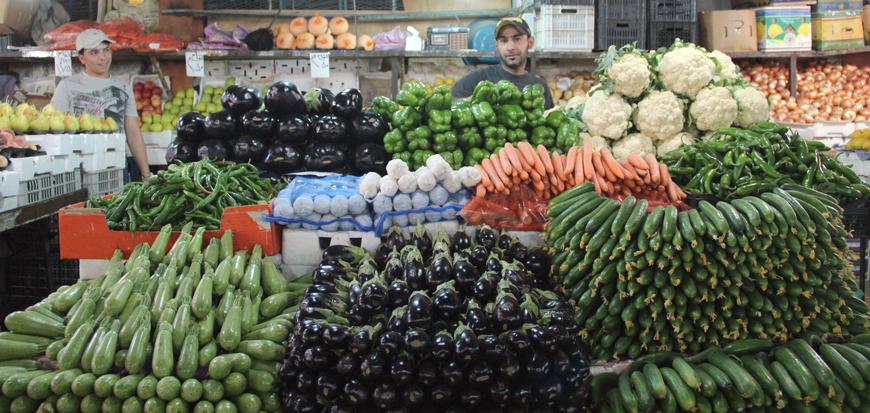You are here
'Early frost damages several vegetable crops'
By Dana Al Emam - Dec 07,2015 - Last updated at Dec 07,2015
AMMAN — The "early" formation of frost in the northern and central parts of the Jordan Valley indicates a climate change that could herald more frost spells with negative effects on crops, an official said Monday.
Agriculture Ministry Spokesperson Nimer Haddadin said the first frost spell of this season on Saturday night, when temperatures dropped to -5°C, negatively affected potato, zucchini and aubergine crops.
He added that initial reports by agricultural engineers and technicians based on field visits recognised frost damage, but noted that it cannot be "clearly" calculated or estimated yet.
"The percentage of damaged crops will be clear after a few days once the technical teams finish their work," Haddadin said, adding that tomato crops in the southern Jordan Valley were not affected by the cold weather.
He added that it is unlikely that the damage will impact the availability of products or lead to price hikes, as the affected crops are not productive at this time of the year.
"Usually frost forms in Jordan during marbaniyeh — the 40 coldest days of winter," Haddadin explained, highlighting the ministry's efforts in spreading awareness among farmers on protecting their crops from frost, in cooperation with the Jordan Meteorological Department and media outlets.
The winter solstice on December 22 marks the start of marbaniyeh, during which the country typically witnesses several depressions, very cold weather, cold and dry easterly winds and several frost spells.
The Kingdom usually gets 30 per cent of its long-term annual average rainfall of 8.3 billion cubic metres during marbaniyeh.
Related Articles
AMMAN — Prices of vegetables in the local market are set to increase as an ongoing frost spell damaged crops planted on thousands of dunums
AMMAN — As Tuesday marks the winter solstice and the start of marbaniyeh — the forty coldest days of the year — the Ministry of Ag
AMMAN — The government should provide farmers with early-warning frost detection systems instead of advising against planting crops that are

















